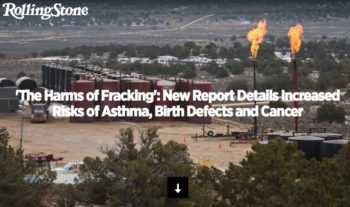
The once revered rock magazine sustained another hard news fail with an article that claims a “new” and “authoritative study” proves “fracking is contaminating the air and water – and imperiling the health of millions of Americans.”
Not only is the “study” that the article is based on not new — it’s not even a study at all.
It is actually a compendium of disproven anti-fracking health reports and talking points that have been compiled, “peer-reviewed” and recycled for years by a pair of anti-fracking groups — Physicians for Social Responsibility (PSR) and Concerned Health Professionals of New York (CHPNY) — whose members are anything but impartial medical experts.
Given Rolling Stone’s past coverage of the oil and gas industry, and the fact that the activists responsible for this “report” are Rolling Stone’s primary sources for the story, it’s no surprise that the piece’s click-bait claims don’t stand up to scrutiny.
Here are some key facts to keep in mind while reading the story.
FACT: Vast majority of story’s sources are anti-fracking activists
Rolling Stone fails to mention that its primary source is CHPNY’s Sandra Steingraber, who is the co-founder of New Yorkers Against Fracking. Steingraber isn’t a big fan of disclosure, either.
You may remember that Steingraber infamously signed a document declaring she had no conflict of interest prior to peer-reviewing a study that New York Health Commissioner Howard Zucker used to support the state’s ban on fracking back in 2015.
When Steingraber’s bias was brought to light, she insisted it didn’t affect her objectivity, telling Fox News:
“I think we are all proud of our ability to be conservative and analytical and absolutely objective about the data. I look at the data and call it as I see it.”
This claim is pretty hard to believe considering Steingraber is quoted in the Rolling Stone piece saying, “Fracking is the worst thing I’ve ever seen.”
Rolling Stone also fails to disclose that another key source for the story, CHPNY Research Director Kathy Nolan, is a member of the anti-fracking Catskill Mountainkeeper, which is fighting needed pipeline infrastructure in New York.
Rolling Stone also extensively quotes Poune Saberi, whose open opposition to shale development is evident from her blog posts on the website Protecting Our Waters, a group whose mission is: “To protect our water, air, health, biodiversity, climate, and communities, we aim to stop fracking.”
Again, no background is provided whatsoever on this source’s activism.
There is also no reference to PSR’s overt anti-fracking agenda, which is obvious to anyone who has visited its website.
PSR has posted that it is “working in multiple ways to give natural gas a black eye” and has unequivocally called for a fracking ban, as the text highlighted in yellow below shows.
It’s worth noting that the PSR/CHPNY compendium Rolling Stone’s fear-mongering is based on has been reviewed for “technical accuracy” by Cornell University professor Anthony Ingraffea, who by his own admission is an anti-fracking activist who writes “advocacy-laced” research.
Ingraffea’s most infamous “advocacy-laced” research wildly exaggerates oil and gas methane emissions and has been repeatedly discredited by peers and colleagues alike (so much for “technical accuracy”).
All told, more than 300 words of this 2,000-word article are direct quotes from the anti-fracking activists listed above.
Yet, not one of them is identified as being an anti-fracking activist in the story.
Considering that the handful of industry quotes included in the story are relegated to the final few paragraphs, it’s no mystery how the misleading and one-sided narrative of the piece developed.
CLAIM: Fracking is “imperiling the health of Americans across the country.”
FACT: Health indicators have improved or remained stable in heavily-drilled areas, while evidence of natural gas’ health benefits has been overwhelming.
Based largely on its liberal use of anecdotes and, presumably, the contents of the PSR/CYPNY compendium, the Rolling Stone article states:
“Residents living near an active site breath air laced with carcinogens, including benzene and formaldehyde, and research has shown an increased risk of asthma, a decrease in infant health and worrisome effects on the development of a fetus, such as preterm births and birth defects.”
It is essential to note that the actual substance of the PSR/CYPNY compendium does not support this hyperbolic conclusion.
Not only are a vast majority of the studies in the PSR/CYPNY compendium epidemiological studies that are not based on actual measurements — and therefore do not prove causation — they are designed to be used as screening studies to form hypotheses rather than draw causal conclusions.
In other words, it is inappropriate to use these studies to draw the concrete conclusions that Rolling Stone (and, oftentimes, the activist authors and funders of the studies) have so openly trumpeted.
Furthermore, numerous reputable third parties, including researchers from the environmental think-tank Resources for the Future (RFF), have criticized many of these studies for flawed methodology and overplaying weak and even contradictory conclusions.
A 2017 RFF report reviewed 32 of the more prominent shale-focused studies on birth outcomes, cancers, asthma, and other health effects, including migraines and hospitalization.
Cumulatively, the RFF research team determined none of those major categories of studies were deemed “high quality,” while studies on birth defects, hospitalizations and multiple symptoms were cumulatively deemed to be of “low quality.”
The RFF report concluded,
“Overall, we find that the literature does not provide strong evidence regarding specific health impacts and is largely unable to establish mechanisms for any potential health effects.”
“Due to the nature of the data and research methodologies, the studies are unable to assess the mechanisms of any health impacts (i.e., whether a certain impact is caused by air pollution, stress, water pollution, or another burden). Even where good evidence is offered for a link between unconventional oil and gas development and health, the causal factor(s) driving this association is unclear.”
Regarding shale-related epidemiological health studies specifically, RFF noted: “all had shortcomings that were most often significant.”
In other words, there is no evidence fracking is “imperiling the health of Americans across the country,” as Rolling Stone claims.
A recent Colorado Department of Public Health and Environment assessment also reviewed 12 relevant epidemiological studies covering 27 different health effects in communities near oil and gas operations and found “no substantial or moderate evidence for any health effects.”
Activists and sympathetic media outlets often tout quantity over quality with regard to studies linking health issues to fracking, and this Rolling Stone article is no different, referring to “more than 1,200 peer-reviewed research articles.”
But, again, RFF evaluated the 32 most prominent studies and concluded, “Overall, we find that the literature does not provide strong evidence regarding specific health impacts.”
Not surprisingly, the PSR/CYPNY compendium does not include several reports based on actual air measurements and health data analyses that find shale development is protective of public health.
EID details 18 studies based on actual air measurements that find fracking does not pose a significant health risk in its recently released Compendium of Studies Demonstrating the Safety and Health Benefits of Fracking.
The most comprehensive of these reports, a 2017 CDPHE analysis of more than 10,000 air samples in heavily drilled areas of Colorado found that emission levels were “safe,” even for sensitive populations.
Furthermore, a recent analysis of public health data points in Colorado’s most heavily-drilled county shows positive health indicator trends since 2002, while a similar analysis of health trends in Pennsylvania’s six most heavily-drilled counties shows mortality rates have declined or remained stable since shale production began in the region.
It is also ironic that Rolling Stone claims fracking is “imperiling the health of Americans across the country” considering there is ample evidence that dramatic declines in air pollution made possible by increased natural gas use have had an undeniably positive impact on public health.
Because natural gas emits far fewer criteria pollutants such as nitrogen dioxide, sulfur dioxide, and particulate matter, air pollution has declined dramatically since the shale revolutions began.
CLAIM: “Fracking sites have caught fire – others have exploded… torching chemicals whose dangerous components local fire chiefs may be surprised to learn are an industry secret.”
FACT: Companies are required disclose each and every chemical used in the fracking process on Material Safety Data Sheets (MSDS), which all emergency responders and medical professionals have access to — even in instances in which fracking fluid additives are subject to “trade secret” proprietary protections.
Oil and gas operations also fall under the Emergency Planning and Community Right-to-Know Act of 1986 (EPCRA). These protections have been in place since 1986 to ensure that emergency responders are not hindered in the event of emergencies involving chemicals.
CLAIM: “Communities have long feared the fracking process can contaminate underground aquifers with hazardous chemicals and research in Texas and Pennsylvania has now confirmed this to be the case.”
FACT: Fracking is not a major threat to groundwater, period.
This is the conclusion of no fewer than two dozen scientific studies, including the U.S. Environmental Protection Agency’s landmark groundwater study, which concluded:
“[H]ydraulic fracturing operations are unlikely to generate sufficient pressure to drive fluids into shallow drinking water zones.”
Furthermore, the data in the EPA’s final groundwater report did not change from the 2015 draft version, which concluded that there is no evidence of “widespread, systemic impacts” on groundwater from fracking.
Despite claims of water contamination in the Rolling Stone story, which are attributed to a pair of uncited studies, there is simply no evidence of health harms caused by the presence of fracking chemicals in groundwater.
CLAIM: “[E]xperts, like Dr. Marvin Resnikoff, a nuclear physicist and international consultant on radioactive waste, remain concerned. ‘The radioactive levels at the Marcellus shale formation are off the charts.’”
FACT: There is no risk of dangerous radiation exposure from oil and gas development.
Specifically, in 2016 researchers from Carnegie Mellon University issued a report concluding that “there is no support” to back up Resnikoff’s claims of dangerous radiation levels from Marcellus shale gas.
A recent peer-reviewed Pennsylvania Department of Environmental Protection study also states that there is “little potential for harm to workers or the public from radiation exposure due to oil and gas development.”
A 2013 New York State Department of Environmental Conservation (NYDEC) report also found, “The concentrations of NORM (Naturally Occurring Radioactive Materials) found on oil and gas production equipment and wastes pose no threat to the public health and the environment.”
In fact, NORM from drilling cuttings can also be found in everyday objects such as dirt, bricks, plants, animals, and surface rocks.
Conclusion
Tina Smusz, one of the numerous anti-fracking activists quoted in the Rolling Stone story, states that the ongoing debate regarding fracking and public health “is a war” in which “one of your most valuable weapons is science.”
We couldn’t agree more. But ironically, Rolling Stone and the anti-fracking activists the magazine provided a bullhorn to this week continue to rely almost solely on anecdotes and deeply flawed scientific research to try to win the argument.
In the meantime, evidence that increased natural gas use made possible by fracking is improving public health is undeniable, while research based on actual field measurements and analysis of public health data show Rolling Stone’s claim that fracking is “imperiling the health of millions of Americans” is blatantly inaccurate.
Read more at EID Health


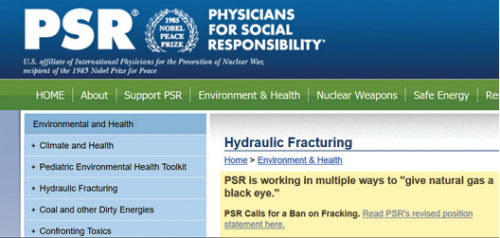
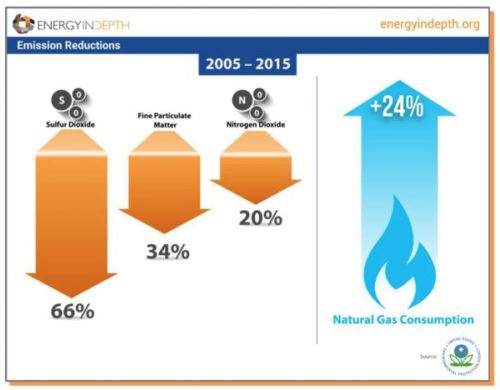
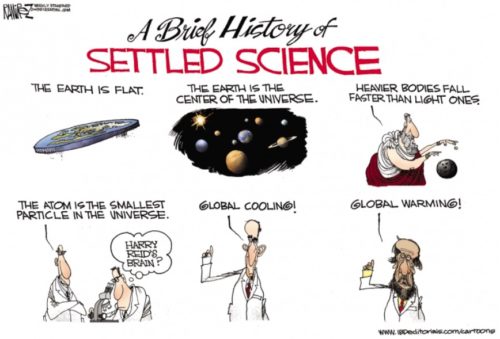


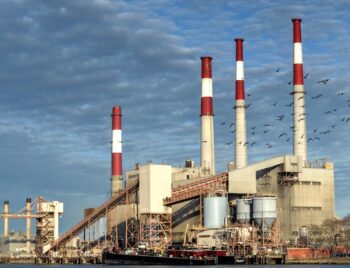











PSR is just like the Union of Concerned Scientists and Phyisian’s Council for Responsible Medicine(PCRM)their concerned are purely political not scientific and Rolling Stone is just another leftists liberal propeganda rag just like Time and Newsweek
Dr. Anthony Ingraffea, The Facts On Fracking……….. from the mouth of an activist are LIES. Not facts. Not distorted data. Not biased results. Not scientific research. Not studied results. And they are not simply lame excuses for organizations that want to keep fossil fuels in the ground.
Dr. Anthony Ingraffea, The Facts On Fracking……….. are intentional lies.
There was one legitimate study funded by an environmental organization on whether or not fracking contaminated well water. The results were that it did not. The environmental group called the results disappointing. Now, why was that disappointing? It should have been good news. This is because the real reason for claiming adverse impacts from fracking is they are simply lame excuses for organizations that want to keep fossil fuels in the ground.
“The anti-fracking activists most valuable weapons is FAKE science.” = LIES.
I wonder how many physicians belong to PSR just as I wonder how many scientists are part of Union of Concerned Scientists. My guess is that few physicians and scientists are involved with either group but you surely can’t find out from their websites.
When I was in college I got a lot mail attempting to get me to join the Union of Concerned Scientists. I never figured out why. Their literature said you didn’t have to be a scientist to join. So whatever their membership is, one thing certain is not all of them are scientists. Considering the garbage that comes out of this organization perhaps very few of them are scientists.
It’s been a long time since I read Rolling Stone, let alone bought one.
A few years ago I drove through Williston, N. Dakota. Heart of the Bakken fracking miracle.
I was impressed, a real-life modern boomtown. The place was jumpin’! However, the air reminded me of an old machine shop I worked in as a teenager. Hazy. Oily. It would be impossible to convince an environmental activist that nothing was wrong.
I was just passing through. Wouldn’t want to live there, unless I needed an awesome paycheck.
Rolling Stone is becoming as bad as TIME,NEWSWEEK The New York Pravda(Times)and the talking heads they have already got sued(And had to Pay)their nothing but a leftists Propeganda rag